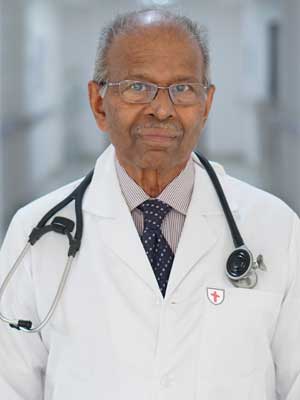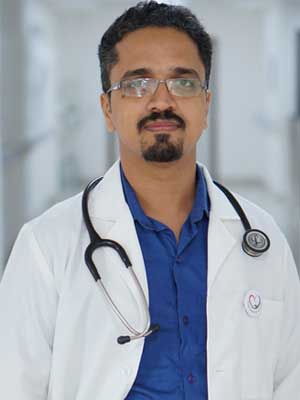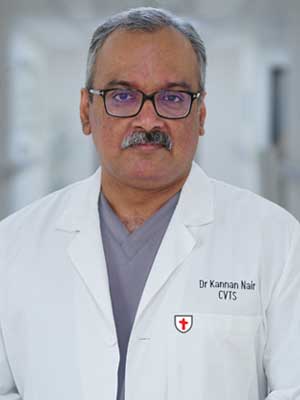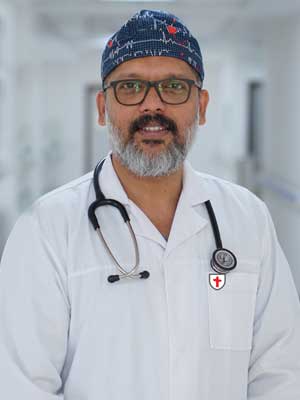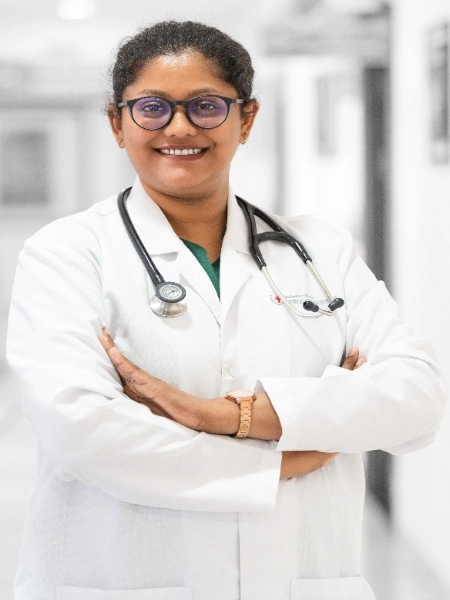Overview
Comprehensive care is provided for the entire range of heart diseases in adults and children along with thoracic and vascular problems and trauma. Cardiothoracic surgeons at Believers International Heart Centre (BIHC) are part of an integrated, multidisciplinary team of doctors and health care professionals who provide individualized care for each patient. The department is equipped with two state-of-the-art operating rooms, 14 bedded ICU and dedicated step-down ICU facilities and a separate 3 bedded transplant ICU. Department is well supported by round-the-clock laboratory, blood bank, ICU, radiology, and emergency services to ensure that the patients receive the highest level of care promptly. The unit has the service of expert intensive care personnel (Adult and Paediatric) round the clock. Besides the code of ethics, we adhere to strict protocols to ensure optimal, evidence-based management of all cardiac conditions. The department is all geared up with infrastructure for comprehensive management of cardiac failure. The department actively performs Minimally Invasive Cardiac Surgeries with plans for Robotics and Hybrid Operation Theatres, befitting an international destination for cardiac care.
Our Services
Adult cardiac procedures
-
Off Pump Coronary Artery Bypass Surgery (OPCABG)
-
Minimally invasive CABG (MICS- CABG)
-
Minimally invasive valve repair/replacement (MICS)
-
Open heart valve repair or replacement
-
Aortic Surgeries (Aneurysms/ Dissection) including Hybrid Procedure
-
Heart Failure Surgeries and Cardiac Transplantation
-
Ventricular assist device implantation and care
-
All major Thoracic and Lung Surgeries including Video assisted Thoracic Surgery (VATS)
-
Peripheral Vascular Surgeries including Extranatomical Bypass Surgery
-
All Cardiac/ Thoracic/Vascular Emergencies
-
Extracorporeal Membrane Oxygenation ( ECMO)
Paediatric cardiac surgical services
-
All complex congenital heart conditions are managed here.
-
Arterial switch operation
-
Truncus Arteriosus Repair
-
Tetralogy of Fallot repair
-
Fontan procedure
-
Complex aortic arch repairs
Services
Adult cardiac procedures
-
Off Pump Coronary Artery Bypass Surgery (OPCABG)
-
Minimally invasive CABG (MICS- CABG)
-
Minimally invasive valve repair/replacement (MICS)
-
Open heart valve repair or replacement
-
Aortic Surgeries (Aneurysms/ Dissection) including Hybrid Procedure
-
Heart Failure Surgeries and Cardiac Transplantation
-
Ventricular assist device implantation and care
-
All major Thoracic and Lung Surgeries including Video assisted Thoracic Surgery (VATS)
-
Peripheral Vascular Surgeries including Extranatomical Bypass Surgery
-
All Cardiac/ Thoracic/Vascular Emergencies
-
Extracorporeal Membrane Oxygenation ( ECMO)
Paediatric cardiac surgical services
-
All complex congenital heart conditions are managed here.
-
Arterial switch operation
-
Truncus Arteriosus Repair
-
Tetralogy of Fallot repair
-
Fontan procedure
-
Complex aortic arch repairs
Specialists
FAQ
Depending on the operation, the average heart surgery takes three to four hours in the operating room. Your loved ones should know that in order to give you the best care possible, your doctors and nurses will need at least one hour before your surgery and at least one hour after surgery to make you comfortable and settled into your room. Your loved ones will be permitted to visit you roughly six hours from the time you are taken to the pre-operative area.
After the surgery, attention should be paid to weight; dietitian support should be taken to achieve the ideal weight. Daily fat consumption should be reduced, fatty foods should be avoided, and a diet based on vegetables and fruits should be adopted. Lean meats should be chosen. Fish, chicken, and turkey should be given priority by reducing red meat consumption, and cooking methods such as boiling, grilling, and steaming should be preferred.
Sugar and salt consumption should also be limited. When consuming milk and dairy products, fat-free products should be preferred. Offal and fried foods are prohibited, and the contents of packaged ready-to-eat foods should be read before consumption.
Patients should be monitored regularly for blood sugar and cholesterol levels; those with high levels despite appropriate diet and exercise should be supported with proper drug therapy.
As with any surgery, there are some risks in heart surgery. However, thanks to the developing medical technology, the probability of successful operations is increasing daily. The risk of coronary bypass surgeries, which are commonly performed in the world and our country, is around 1%.However, the patient's general health status, age, and other accompanying health problems affect the risk of developing complications. The risk is higher in patients with advanced age and loss of function in organs such as kidneys, lungs, and liver.
At the same time, the increase in these risks depends on whether or not the heart muscle is damaged. Apart from operations such as coronary bypass, the risk rate is slightly higher in operations performed on patients with bleeding due to ruptures of the main vessel, for example. Along with coronary bypass and accompanying valve disorders, valve replacement or repair surgery is also performed. The risk ratios may differ from patient to patient and according to the surgical intervention to be applied.
The risk, benefit, and harm ratio may vary for each patient. The risks arising without surgery may be much greater than the possible risks.
Yes, heart surgery can be performed without cutting the sternum. Thanks to the developing medical technology, heart surgeries are served with a method called minimally invasive. Unlike open surgeries, which are accepted as standard and are performed by cutting the chest bones, small incisions are sufficient in these operations. With the help of small incisions (on armpits or under the breasts), heart valve replacement, repair of congenital holes in the heart, and coronary bypass surgeries are performed successfully.
Although not widely applied yet, robotic surgery also allows the operation to be performed by opening only small incisions, together with the minimally invasive method. Both of these methods allow surgeons to reach the heart without any problems. Thanks to the small incisions after the surgery, the patient heals faster.
When these methods are applied, the patient's suitability and the disease's condition for the operation are essential criteria.
